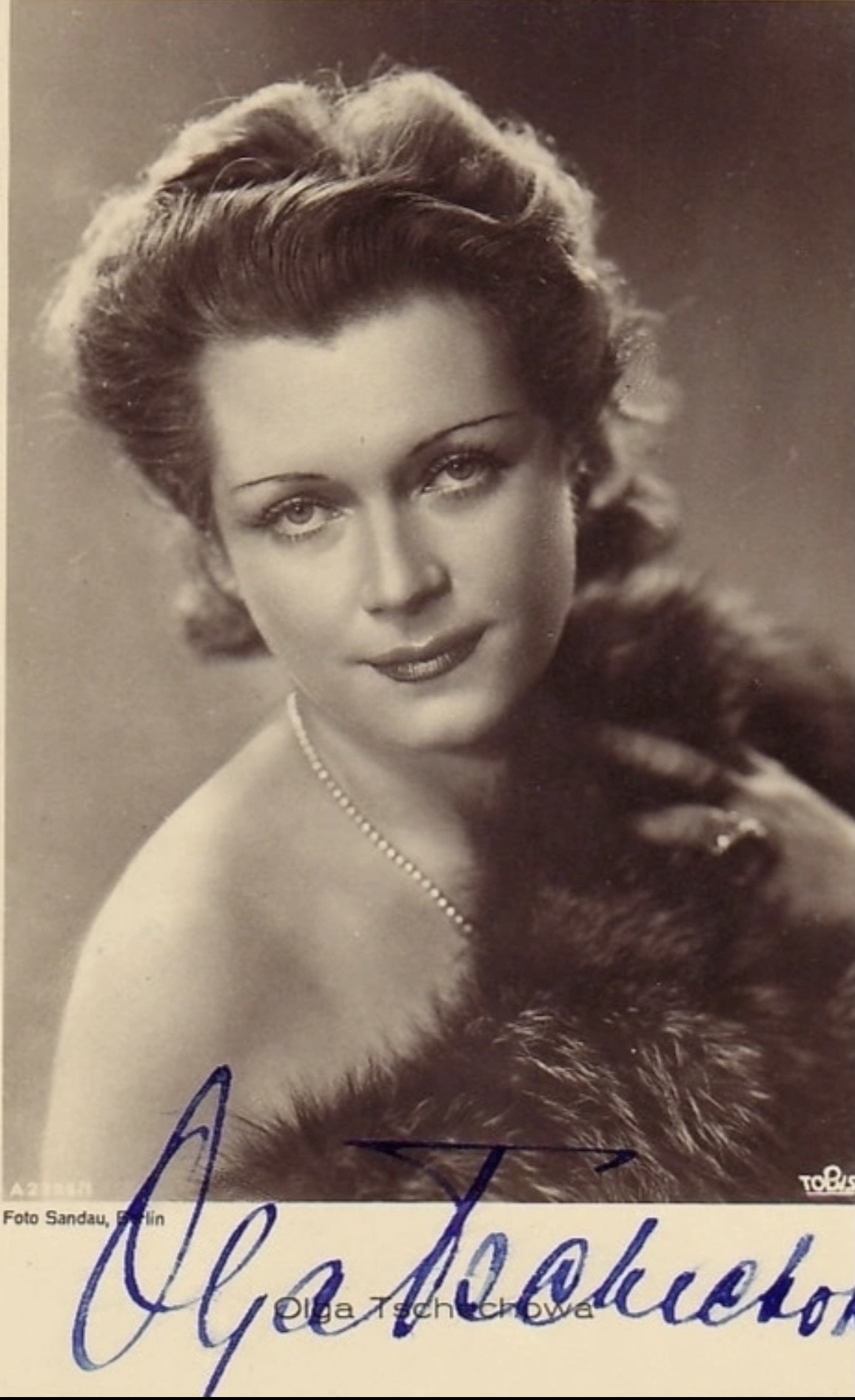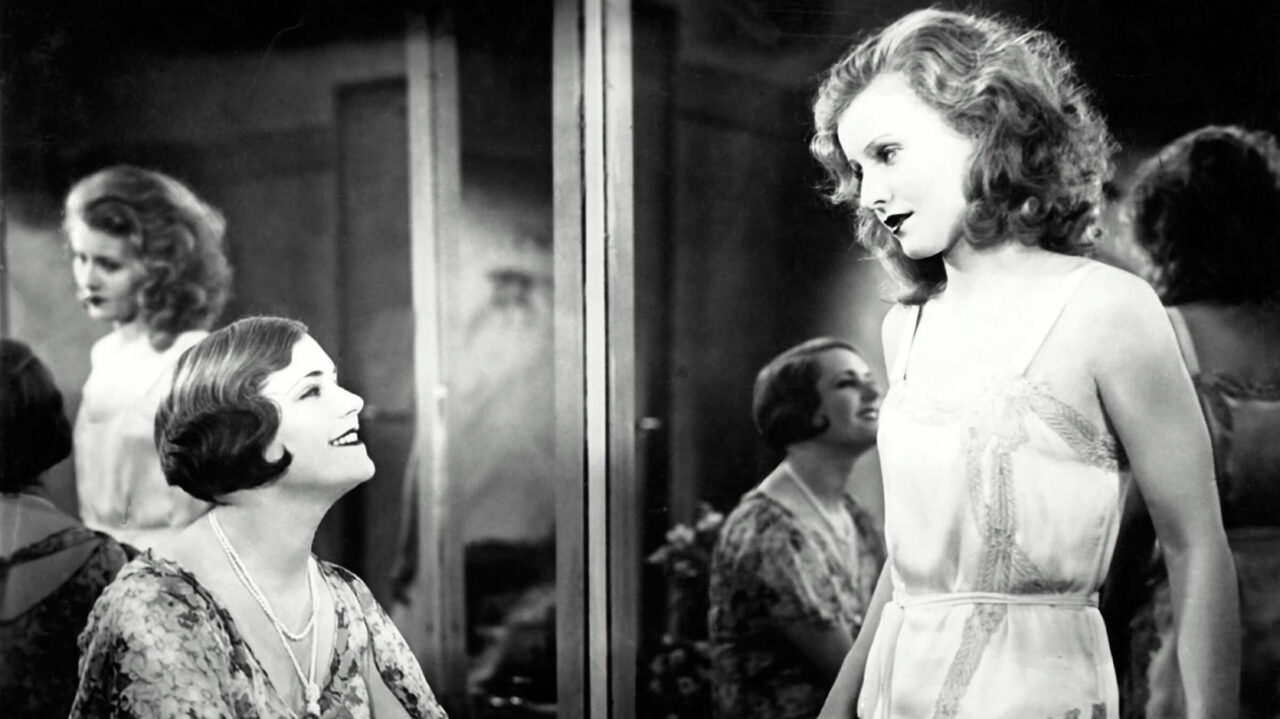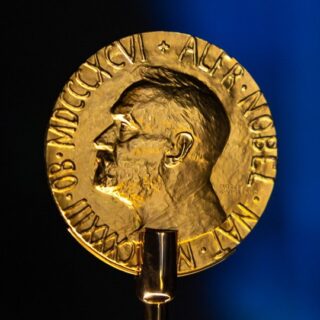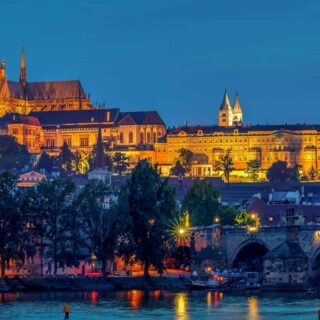

Olga Chekhova was a film star of the Third Reich and Hitler’s favorite actress. And all these years she was at the forefront of the invisible front, playing a complex and dangerous game against the leaders of the Nazi regime.
It’s hard to believe, because she was not included in any foreign or military intelligence records. She was Stalin’s personal intelligence agent.
Foreign intelligence veteran and my friend Arsen Benikovich Martirosyan writes: “While doing historical research, I was repeatedly amazed at how detailed Stalin knew the mechanics of various political events, the forces operating on the world stage, and how his actions were distinguished by exceptional precision.”
Since Arsen’s father was Stalin’s legal adviser on international legal issues, by communicating with his father’s friends, Arsen learned a lot for himself. According to him, after the war, Stalin’s personal intelligence service worked under the roof of the Main Directorate of Soviet Property Abroad.
According to other sources, this special service was under the roof of the Ministry of State Control, which in 1950-1953 was headed by Beria’s closest associate, former People’s Commissar of State Security, Army General Vsevolod Nikolaevich Merkulov. State Control employees kept everyone under strict supervision and had the right to check anyone — from a minor official to a minister or marshal.
That is why Merkulov faced the same fate as Beria — after Khrushchev’s military coup, he was accused of treason and shot. They were followed by the Minister of State Security, Viktor Semyonovich Abakumov, in whose hands all cases were concentrated on high-ranking military officers, party apparatchiks and officials involved in abuse of power, theft and bribery. That is why, until her death, Olga Chekhova was painfully afraid of Russia and never talked about what she did during the years of the Third Reich.
However, Russia constantly lived in her soul: she retained her accent, and at home she spoke Russian. But when footage of the war years was shown on TV, for some reason she immediately asked to turn off the TV. It is not difficult to guess that she was afraid to remember what they did in her homeland to people dear to her and how they distorted the memory of them. Moreover, she was connected with the Caucasus by family traditions.
Olga Konstantinovna von Knipper-Dolling was born on April 26, 1897 in Alexandropol, the second largest city in Armenia, in the family of the famous German railway engineer Konstantin Leonardovich Knipper, an associate of the Russian Prime Minister Sergei Yulievich Witte, also of German descent.
The Knipper family alternately lived in Tiflis and Tsarskoye Selo, and little Olga often played with the children from the imperial family. In her birth certificate, in the column “class origin”, it was listed as “daughter of the Actual Privy Councilor” (the rank of the 2nd class of the Table of Ranks corresponded to the rank of “full” general, admiral and the highest court ranks). Her mother painted beautiful landscapes, her parents often played four hands on the piano, organized home performances and concerts, which were attended by Tolstoy, Rachmaninov and Chaliapin. Aunt Olga, after whom they named Olenka, often visited them.
The famous artist of the Art Theater Olga Leonardovna Knipper-Chekhova, the wife of Anton Pavlovich Chekhov, was the sister of Olenka’s father. With her stories about theatrical life, benefit performances and premieres, she flustered the ardent heart of her niece, who grew up as a slender, long-legged girl with a strikingly beautiful face, gentle and powerful. She felt vitality and hidden feminine magnetism. As a result, the parents had no choice but to send their daughter to Moscow to study theater with her aunt.
Introduced to Stanislavsky himself, Olga received roles in the plays “The Cherry Orchard” and “Three Sisters” based on the plays of Anton Pavlovich Chekhov and soon became crazy about his nephew Mikhail Chekhov, also an aspiring actor at the Art Theater.
They secretly got married on September 3, 1914, without asking for the blessing of their parents and bribing the priest. A little time will pass, and Mikhail Chekhov will be called a brilliant Russian actor. And she, having become Olga Chekhova, settled in his apartment, cramped, small, musty, in no way comparable to her parents’ huge house in Tsarskoe Selo and her aunt’s luxurious apartment in Moscow.
In addition, Mikhail drank heavily. Bohemian, expressive, always surrounded by fans, he demanded constant attention. In the fall of 1916, a girl was born into the Chekhov family, who, according to tradition, was christened Olga, but everyone began to call her Ada. Mikhail continued to brawl, often shouting at his wife and daughter. The situation was aggravated by the fact that Mikhail’s cousin Vladimir was hopelessly in love with Olga.
In September 1917, Vladimir was enrolled in the Art Theater, and in December he shot himself, stealing a Browning from Mikhail’s desk. This made a strong impression on Olga. Soon she, having packed her things and taken her daughter, leaves Mikhail’s house. In parting, seeing how her husband was worried, she stroked his cheek and said: “How ugly you are! Well, goodbye. You’ll soon forget.”
At the same time, Olga went not to her mother and father, but to a certain Friedrich Yarosi, a former Austro-Hungarian officer. Here is what Mikhail Chekhov writes about him: “Elegant, handsome, charming and talented, this man had great inner strength that irresistibly influenced people. He unerringly achieved all his goals, but these goals were always dark and immoral. When fighting was still going on in the streets of Moscow, the adventurer I’m talking about walked freely through the streets, visiting us every day, and was cheerful and charming, as always. Laughing, he said that they could not kill him. “If you know how to despise life to the end,” he said, “it is out of danger.” Under his influence, Olga left me.”
After the divorce, Olga kept her husband’s last name — Chekhov. “She chose to share my fame with me,” Mikhail joked.
In 1921, Olga Chekhova turned to the People’s Commissar of Education Lunacharsky with a request to allow her to travel to Berlin “to improve her health and continue her theatrical education.” There, Olga Chekhova — “Volksdeutsche”, as they said then — was accepted as one of their own. After all, she spoke German, albeit with an accent. And her appearance was suitable: tall, slender, with blond hair, an arrogant face and blue eyes. She happily separated from her second husband, Friedrich Jarossi, and completely plunged into the world of the increasingly powerful cinema. She filmed a lot, 6-8 films a year.
Olga Chekhova on the film still of The Italian Straw Hat (France, release 13 January 1928).
Innate aristocracy and beauty quickly paved her way to success. Her own house, fabulous fees… She even obtained permission for her mother, daughter and sister to leave the USSR, which the Soviet authorities did surprisingly quickly… Mikhail Chekhov, whom Olga met in July 1928, also ended up in Berlin. She rented a cozy three-room apartment for him and his wife not far from her and introduced him to director Max Reinhardt. In 1930, the premiere of the film “Troika” took place in the huge Berlin cinema “Capitol”. Olga played the leading role of socialite Vera Valova, surrounded by darkness of fans, and Mikhail played the role of Pashka, the village fool. Mikhail never settled down in Germany, but made a brilliant career in the USA, where he taught acting. Among his students are Ingrid Bergman, Marilyn Monroe, Anthony Quinn and other Hollywood stars.
Marlene Dietrich, who was considered the ideal of the Aryan woman, also left Germany and moved to Hollywood. Goebbels offered her 200,000 Reichsmarks for each film made with her participation in Germany — but all in vain. But Chekhova remained.
She easily combines the culture of fashion models and aristocrats on the screen, becoming, as it were, part of the “German dream.” She is presented to Hitler, Himmler, Goebbels. A student of a Russian theater school becomes the first star of German cinema. Her closest friends were Eva Braun, Magda Goebbels, Leni Riefenstahl, she communicated with Goering’s wife, actress Emmy Sonnemann. But most importantly, the Fuhrer himself loved Olga Chekhova, placing her above Marika Rökk and Tsara Leander.
In his memoirs, Lieutenant General Pavel Anatolyevich Sudoplatov writes: “The famous actress Olga Chekhova, the ex-wife of the nephew of the famous writer, was close to Radziwill and Goering and was connected with Beria through relatives in Transcaucasia. Later, she was in personal contact in 1946-1950 with the Minister of State Security Abakumov, who replaced Beria.”
Another legendary intelligence officer, Colonel Zoya Ivanovna Voskresenskaya, notes: “Today one thing is clear: the “Queen of the Nazi Reich” Olga Chekhova was among those who courageously fought against fascism on the invisible front.” Arsen Martirosyan, whom I already mentioned above, points out: “An outstanding illegal intelligence officer, operating under the pseudonym “Merlin,” aka Olga Konstantinovna Chekhova, worked for Soviet intelligence from 1922 to 1945.
The scale of its intelligence activities, volumes and especially the level and quality of the invaluable information it sends to Moscow is clearly demonstrated by the following facts. First, the connection between Olga Chekhova and Moscow were supported by three radio operators in Berlin and its environs.
Radio operators did not even know whose information they were transmitting. The constant presence at Chekhova’s disposal of three radio communication channels independent from each other is not surprising, because, firstly, her primary sources of strategically important information were the leaders of the Third Reich themselves — Hitler, Goering, Hess, Goebbels, Keitel, Speer and others, as well as their wives and mistresses with whom she maintained close friendly ties (for example, Olga Chekhova started a friendship with the same Eva Braun at the direction of Moscow back when Hitler was just considering her candidacy for the role of a permanent mistress — in the early 30s).
Hitler, as they say, doted on Olga Chekhova and, having awarded her the specially established title of State Artist of the Third Reich, invited her to the most prestigious events, during which he demonstratively showed her signs of the highest attention (for example, he invariably sat her next to yourself).
Naturally, Stalin knew with certainty almost every day what Hitler, and at the same time his entourage, was doing and thinking. And thirdly, invaluable information from Olga Konstantinovna’s subagents personally — senior Wehrmacht officers: Albrecht von Quirigeym (OKW headquarters), Werner von Heften and Eberhard Fink (OKH headquarters) was also organically woven into the flow of this information.”
At the beginning of 1945, Reichsführer SS Heinrich Himmler signed an order for the arrest of Olga Chekhova. She knew very well what it meant to end up in the Gestapo. But this, fortunately, did not happen. When the SS men, led by Himmler, entered her house on Gross Glienicke, they saw that she was drinking morning coffee with… Hitler. The arrest never took place.
Olga Chekhova was arrested on April 29, 1945 in Berlin by SMERSH officers and flown to Moscow. In her diary, she noted: “I am pampered here and all my desires are fulfilled. They sent the best hairdresser, wine, food: caviar, lemons… My one hint was enough that my daughter Olya, who remained in Berlin, might need food, as it had already been settled. I have a radio, flowers, perfume, the best books.” According to Sergo Beria, “when my father found out that the German actress Olga Chekhova had been detained, he asked what Abakumov was going to do with her. SMERSH did not have any data.
“In that case,” said the father, “she should be released, let her go to Germany… And Chekhova really went to Germany. Olga Chekhova collaborated with my father for many years. I know who recruited her and on what grounds this was done, but I do not consider myself entitled to talk about such details from the intelligence officer’s biography… She worked for Soviet strategic intelligence not for material reasons.”
According to Sudoplatov, Olga Chekhova “was transferred directly to Abakumov, who became Minister of State Security in 1946. She maintained personal correspondence with Abakumov while in Germany until his arrest in July 1951.” In her letters, she called Abakumov “dear Viktor Semyonovich” and asked: “When will we meet?”
Olga Chekhova still worked a lot. In 1949, after a break of almost five years, she starred in the film “A Night in Separei.” The film was unsuccessful, but already in 1950 she starred in seven films, fulfilling her previous quota. “They call her here the woman who invented eternal youth. Beautiful, young, no more than 35 years old,” Olga’s sister Ada Konstantinovna wrote to her aunt in Moscow on October 29, 1949.
In 1950, Olga Chekhova moved to Munich and in 1955 founded the company Olga Chekhova Cosmetics. On stage, she actively promoted her granddaughter Vera Chekhova, who became a famous German film actress and had a whirlwind romance with Elvis Presley in 1959.
Subsequently, Vera said that her grandmother, who lived in Germany for almost sixty years, but retained her accent and spoke Russian at home, did not want Vera to go to Moscow to film a film about Anton Pavlovich Chekhov, and tried her best to dissuade her from this trip. This is understandable — after the massacre of Beria, Abakumov, Merkulov and the vile anti-Stalin campaign, what else could you expect from Khrushchev?
The same thing, by the way, will be done in 1991 with Erich Honecker, Markus Wolf and all the best agents of East German intelligence — such as Gabriela Gast and Rainer Rupp. They have been supplying the Kremlin with unique information for decades, but they were simply handed over and not lifted a finger in their defense.
On March 9, 1980, feeling that her last minutes were approaching, Olga Chekhova called her granddaughter and asked her to bring a glass of champagne, which turned out to be the last in her life. She drank it and, having managed to say: “Life is beautiful,” she passed into another world. Anton Pavlovich Chekhov did exactly the same thing 76 years earlier. He also asked his wife Olga Leonardovna to bring him a glass of champagne and, after drinking it, died in the German town of Badenweiler.
This article was written specifically for The CommentaTHOR magazine.






